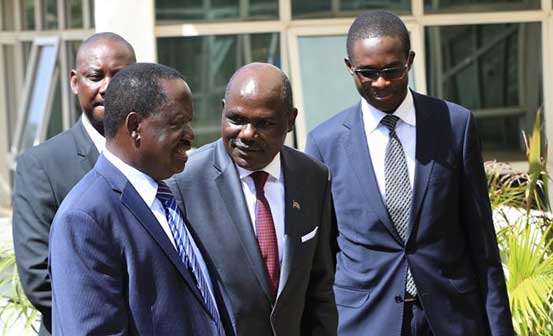×
The Standard e-Paper
Stay Informed, Even Offline

The stalemate over the procurement of ballot papers threatened to blow out of control, with the electoral commission and the Opposition sticking to their guns.
But what are the options for both the National Super Alliance (NASA) and the Independent Electoral and Boundaries Commission (IEBC) in the matter?